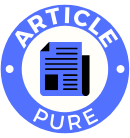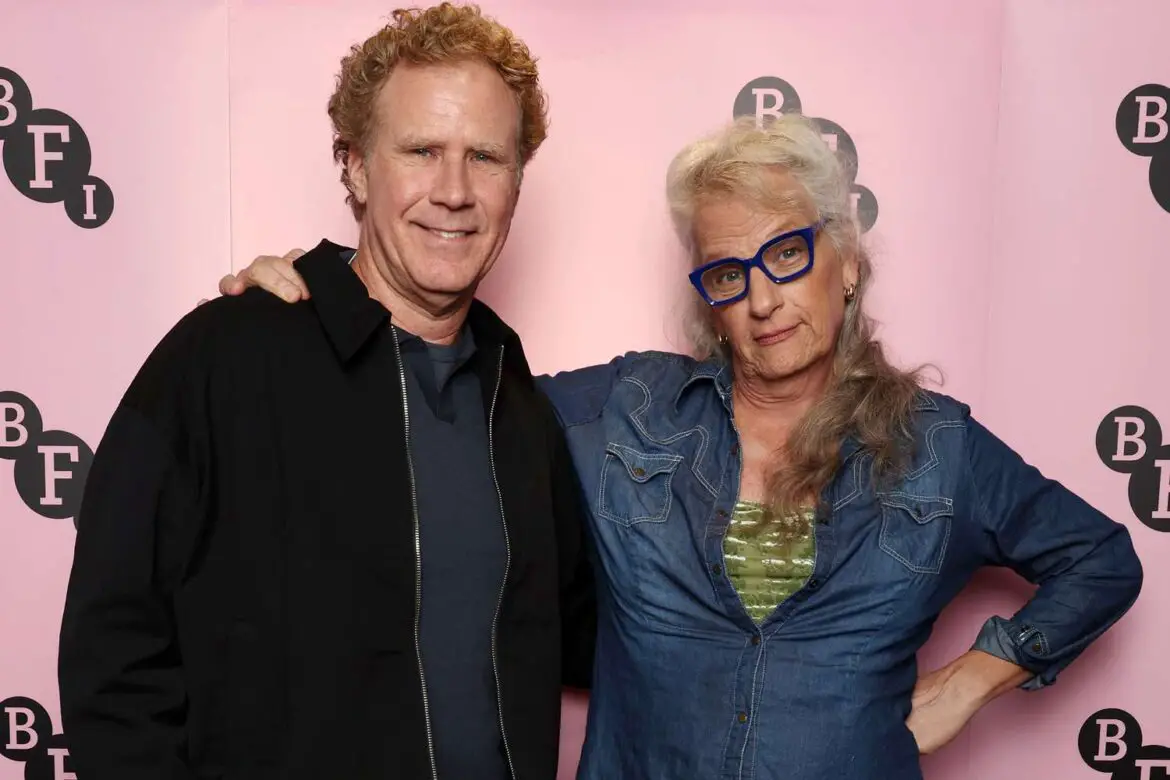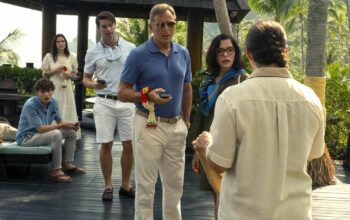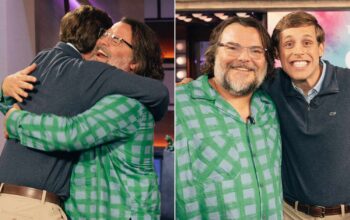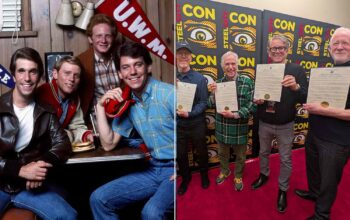Will Ferrell and Harper Steele started working on Saturday Night Live the same week in 1995. They immediately hit it off — a match made in comedy heaven.
Steele helped Ferrell create some of his most iconic characters and sketches, including Ferrell as crooner Robert Goulet. Ferrell, of course, would go on to become Movie-Star Will Ferrell; Steele became head writer of SNL. Both would welcome children, and the duo remained best friends. Two years ago Steele wrote him a letter: She was coming out as a trans woman.
Ferrell, 57, had an idea. Steele, 62, had always loved driving across the country, so her friend made a suggestion: “Let’s do it together.”
Courtesy of Netflix
Soon it evolved into something a bit more ambitious: “We thought, ‘Well, why not film it? Because if we catch lightning in a bottle, maybe this could be helpful to someone else,’ ” recalls Ferrell.
The result is the powerful new documentary Will & Harper, filmed over a 17-day road trip and now in theaters and on Netflix. While it’s really Steele’s story, Ferrell’s name comes first. “Yeah, that’s painful,” Steele laughs with her trademark deadpan. Here, a conversation between the friends.
Harper, you say in the film, “I love this country. I just don’t know if it loves me.” Having
now driven from New York to California, do you have a clearer answer?
HARPER STEELE: Plenty of people in this country, if they don’t love me, they’re fine with me. They’re friendly towards me, in all states and every region. And yet there are still people who fear me. But I’m much more comfortable in this country after doing this doc, I’ll tell you that.
Will, let’s go back to your initial idea for this documentary.
WILL FERRELL: In talking to Harper, I knew she had slight trepidation doing the road trips that she’s done her whole life, now as a trans woman. And that triggered an idea in my head: What if I could go with her to those places? And at the same time we can have a discussion as to what it means to be trans, and I can ask all the questions I have as a cis male. But mostly it just felt like a fun thing for us to do.
Emma McIntyre/Getty
Harper, the film shows the highs and lows of being alongside your best friend in public, as he’s very famous.
STEELE: Well, there’s more advantage than disadvantage, because everyone likes Will. The only disadvantage is when it brings unwanted scrutiny to my existence. If you’re a trans person, and you’re out in front of people, you’re a political animal no matter what, if you want to be or not. So, yeah, if you’re a trans person, you probably don’t have the opportunity to have Will Ferrell with you crossing America. It was very privileged. And a great way to demonstrate allyship and friendship.
Will, what would you say you learned about yourself as you made the documentary?
FERRELL: I learned that I was okay with going into the depths of being as vulnerable as I could possibly be. Actually, I didn’t learn this, but I love listening. I really do. That was my job. My job was to ask a few questions but to let Harper do all the talking.
Courtesy of Netflix
Of course, you met at SNL, and this is now the 50th season of the show. What did it mean to have so many of SNL friends, including Molly Shannon, Kristen Wiig and Will Forte, appear in the doc?
STEELE: SNL was a high-pressure job. If you are lucky enough to work on the show you share a bond with the other writers and performers — they become your family. These people responded with such love and support for me when I came out, so it was only natural that I would want them with me in our doc.
You both created so many iconic sketches on the show, but do you have a beloved sketch that didn’t make it on the air?
STEELE: Oh, 70 to 80 percent of the time. We wrote a sketch together called Unicorn Mountain. Will started this sketch, and I finished it. It was a four-minute kids’ show opening about a unicorn mountain, and how free and wonderful and magical unicorns are. I opened up the actual sketch on him and Tracy Morgan eating a unicorn and talking about how easy they are to catch. Because, you know, they’re so free and wonderful and magical.
FERRELL: I have a vision, a memory of us sitting on the side of a mountain. Eating a unicorn. Did it make it to dress [rehearsal]?
STEELE: No.
FERRELL: Dang it.
